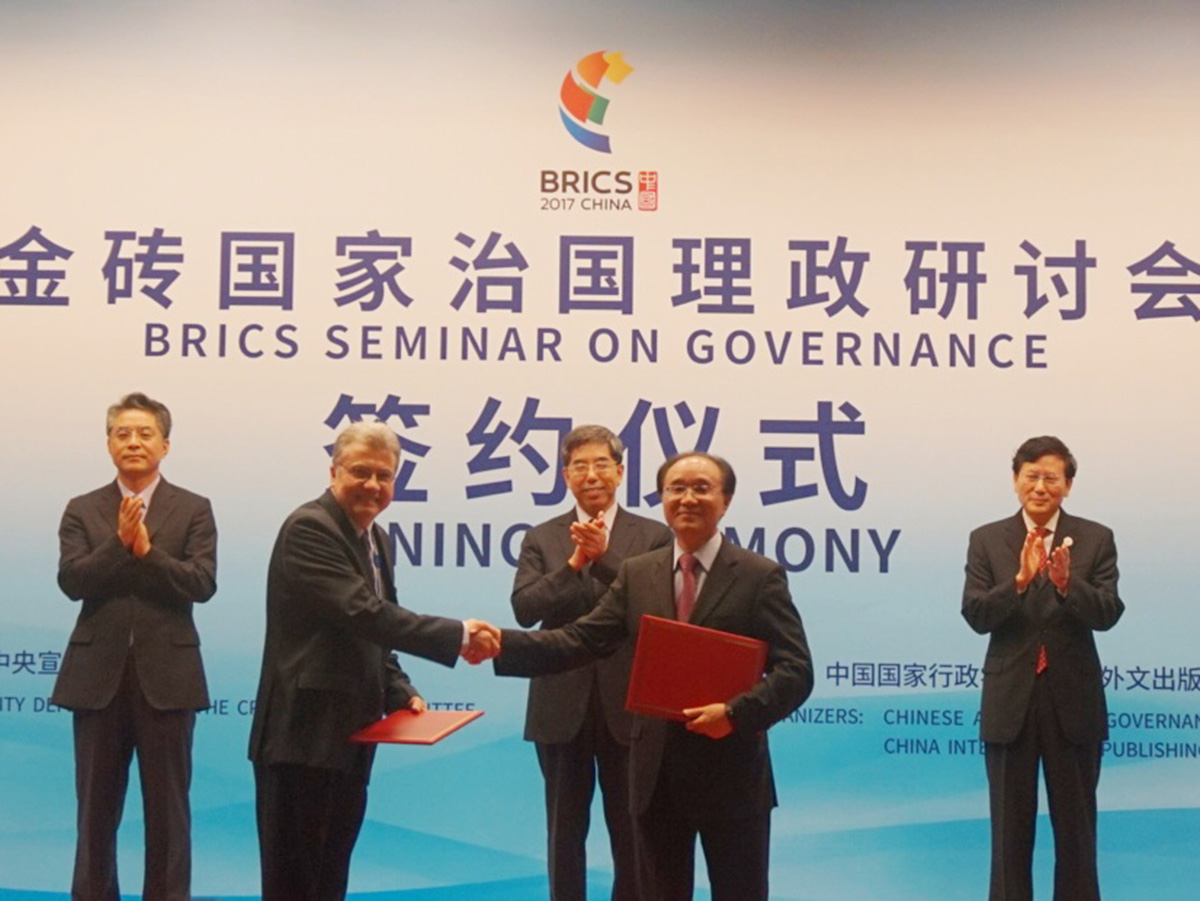CIPG, BRICS Think-tanks Sign Cooperation Agreements

To facilitate people-to-people exchange among the BRICS nations, bring the communication of high-end think-tanks of the BRICS nations into full play, and serve their overall development, on August 18, during the two-day BRICS Seminar on Governance, hosted by the Publicity Department of the CPC Central Committee and co-organized by the Chinese Academy of Governance and China International Publishing Group (CIPG), CIPG respectively signed a memorandum of understanding on academic research and communication with four institutes and agencies, including the Institute of Europe of the Russian Academy of Sciences, the Center China-Brazil: Research and Business (CCB), the Institute of Chinese Studies in Delhi, India, and The Thinker magazine in South Africa.
Ma Jiantang, executive vice president of the Chinese Academy of Governance, Tuo Zhen, vice minister of the Publicity Department of the CPC Central Committee, and CIPG President Zhang Fuhai attended the signing ceremony. Wang Gangyi, vice president of CIPG, signed cooperation agreements with the heads of other BRICS agencies and agencies respectively.
According to the agreements, both sides will work closely on the following four aspects: Firstly, information of research progress and trends will be shared. Secondly, people-to-people exchange will be promoted. Beginning from 2018, both sides of the agreements will invite and dispatch professionals to each other for academic communication. Thirdly, research projects will be launched. Every year, cooperative or entrusted research will be launched on projects and programs that interest both sides. And finally, academic discussions and symposiums will be held to meet the needs of both sides.
The Institute of Europe of the Russian Academy of Sciences, established in 1987, is a major think-tank working on European studies since the former Soviet Union. The CCB is an important think-tank in South America that studies China, and promotes friendly relations between China and Brazil. The Institute of Chinese Studies in Delhi, India, is an influential think-tank that designs strategies for India to interact with China and other eastern Asian countries with consultancy service for information acquisition and decision making. The Thinker magazine in South Africa is a political commentary quarterly published in the Pan-Africa region.
The future of BRICS cooperation requires both top-level design and people-to-people exchange, especially the cooperation and joint wisdom of the think-tanks of BRICS nations, Wang Gangyi said in an interview. As the BRICS mechanism steps into its second decade, there is plenty of room for bilateral and multilateral cooperation between BRICS nations, Wang said. The BRICS think-tanks are expected to leverage their strengths, complement each other, and bring up solutions for BRICS nations, so as to drive BRICS cooperation forward for better social development, and become practitioners of new globalization, drivers of new global governance and pioneers of new South-South cooperation, he added.